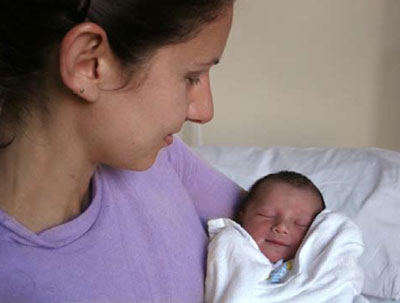The average Aussie family has less than three kids, but our parents who grew up in the Philippines did so in large households with enough siblings to form a basketball team – with a reserve bench. KAT MAYO looks at some of the intergenerational differences we may encounter.

Mum
When are you having kids?’ It’s a refrain that many Filipinas are familiar with. Before the ink dries on your marriage contract, family and friends are already anticipating the most rewarding – and most difficult – time in your life. But having children in Australia today is a different experience to what our mothers and grandmothers went through in the Philippines.
It’s a good thing modern medical care provides more options than home-birthing 12 children, as our grandmothers may have done. Ante-natal care is no longer just the province of doctors. In the public health system, you’re more likely to see your GP or midwives during your pregnancy, with occasional appointments with an obstetrician.
Most women will have at least two ultrasounds. Aside from detecting developmental abnormalities, ultrasounds provide the first pictures of your baby. You can find out the sex of your baby, and you’ll know if you’re carrying two or more babies, so you’ll have time to prepare for their arrival.
Some facilities offer 3D ultrasounds, and you can start working out whether your baby has your nose or her father’s mouth before she’s even born. During your last trimester, you’ll be encouraged to attend ante-natal classes to help prepare you for the big day.
Perhaps the biggest difference you, and your mother, will notice is in labour. Here, women are encouraged to labour naturally, if they can, and to be involved in the birthing experience. Partners are allowed into the labour ward and encouraged to actively support you. (Mention this to your dad and he’ll probably recoil in horror – the thought of fathers participating in labour can be a horrifying concept for him and possibly for your mum, too!) You don’t have to deliver your baby on a hospital bed. Your midwife might encourage you to walk around, have a shower, and even labour in the bath. If complications arise, you or your partner will be informed every step of the way so you can decide how you want to proceed. After you give birth – assuming you didn’t have a Caesarean section – the first thing you’ll do is take a shower. Your mum will probably find this shocking – there’s a Filipino superstition that says you shouldn’t take a shower within twenty-four hours of giving birth or you’ll get pasma. But after the sweat, the blood and the exhaustion, a warm shower can be a relief.
When you move to the maternity ward, you’ll probably room in with your baby. Since many public hospitals no longer have a nursery for normal maternity patients, your baby will sleep with you in your room. Your nights will be exhausting, because even though you can page a nurse for help, they may not get to you straight away if there are other patients to look after. If you’re lucky enough to be in a single room, you can arrange to have your partner or mother stay overnight to help you. Dads are not only encouraged but are expected to take an active role in caring for their new babies. This is great, because if you teach them how to change nappies, they’ll have no excuse to avoid it when you get home!
Once you’re home – sometimes as early as two days after delivery – you’ll really feel the difference, because … there are no maids here. Dishes won’t magically be done, laundry will pile up, and you’ll have Pizza Hut on speed dial. Those Sunday family dinners at your parents’ that used to be a chore will now seem like a godsend as you bring home a week’s worth of leftovers.
The greatest friction you’ll encounter with your mum will be in parenting your new baby. We’re surrounded by information – in books, online, and in parenting groups – all seemingly backed by scientific studies. It’s hard to overlook these in favour of our mothers’ advice. ‘I did it this way and you turned out okay,’ is something you may hear a lot. In Australia, parents are given much leeway to exercise our own choices and decisions without judgement. It’s easy to forget that our parents were guided by extended families, based on wisdom that owes less to science than to personal experiences, sometimes painfully learned. We may disagree and do things differently, but that doesn’t mean they did a bad job with us.
How wonderful, then, to find our differences fading into the background when you watch your baby trying new things, and see your parents smile and say, ‘When you were her age, you used to do that, too.’